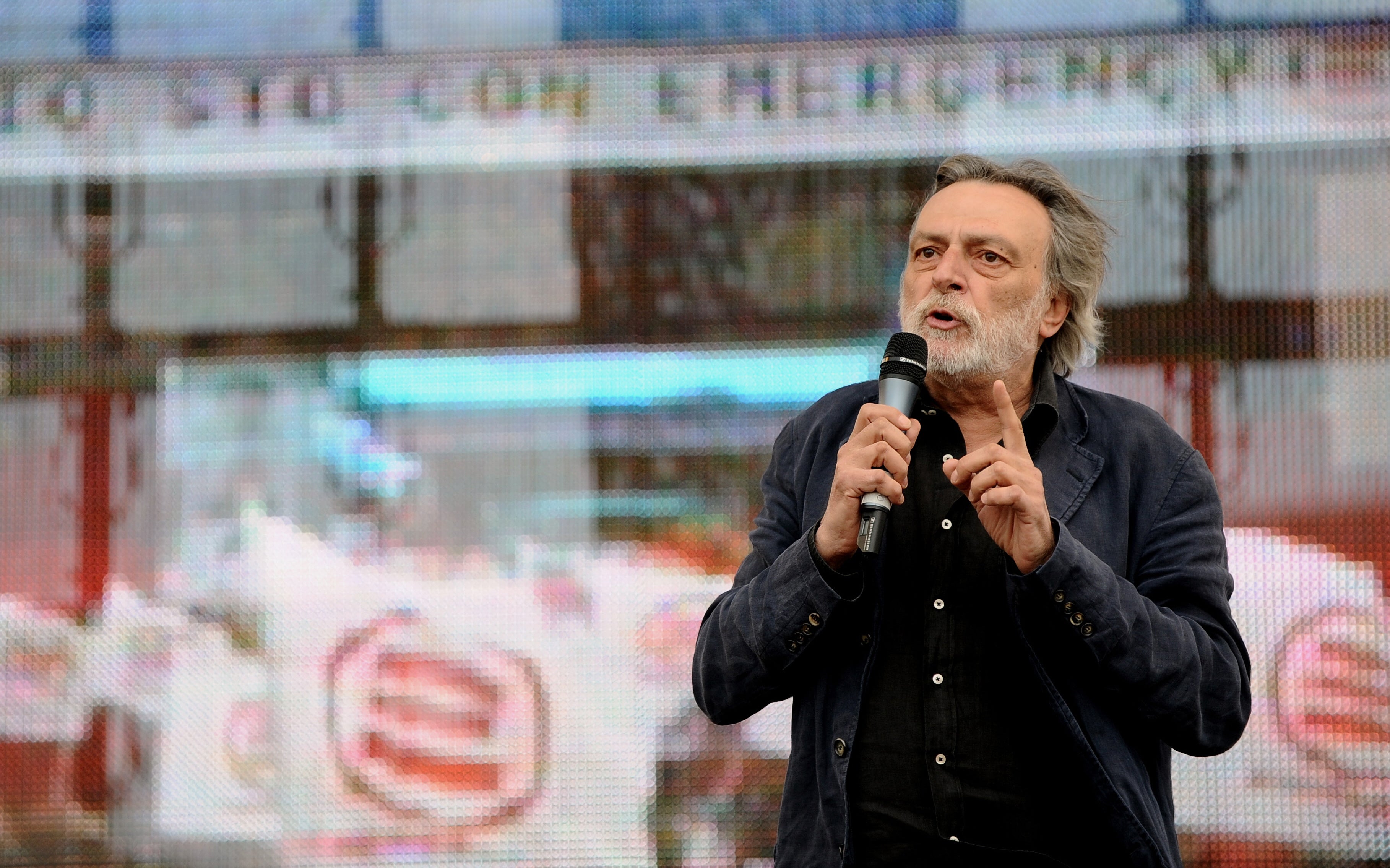Gino Strada: Italian war surgeon who believed in healthcare for all
Working on the front line of some of the most devastating conflicts, including Rwanda and Afghanistan, Strada fought to bring medical access to the most impoverished

Gino Strada, an Italian surgeon who helped bring medical care to the most impoverished, war-riven corners of the globe, building hospitals and clinics through a nonprofit organisation that won international renown for its humanitarian work, has died aged 73.
The cause was heart ailments, according to his wife, Simonetta Gola, who is communications director at Emergency, the Milan-based NGO that Strada co-founded in 1994. A specialist in heart and heart-lung transplants, he had once suffered a heart attack while working in the embattled Iraqi region of Kurdistan during the regime of Saddam Hussein.
For decades, Strada pursued with seemingly single-minded devotion a campaign to ensure that no military theatre of operations would be without an operating theatre, that inner sanctum of medicine where surgeons, sometimes against all odds, apply their art to extend or save lives that might otherwise be lost.
He and his colleagues at Emergency built hospitals, surgical centres, maternal and paediatric wards, and other medical facilities in 19 countries, including Cambodia, Serbia, Eritrea, Nicaragua and Sri Lanka, serving more than 11 million people over the years, according to the organisation. Strada personally performed 30,000 operations, The Observer once reported.
Strada’s group functions primarily through private donations. Most of its patients are civilians – victims of land mines, improvised explosive devices, bombings, suicide attacks and diseases that flourish in communities without access to proper sanitation and medical services. The organisation cared for Ebola patients in Sierra Leone and, at the Salam Centre for Cardiac Surgery in Khartoum, Sudan, children whose hearts were damaged by rheumatic fever.
Rigorously neutral in all conflicts, Emergency also treats combatants; in Afghanistan, where he lived for a total of seven years over the decades, Strada once negotiated with leaders of the Taliban and the rival Northern Alliance to ensure the safety of Emergency patients on both sides of the conflict, The New York Times reported.

At the core of Strada’s work was his conviction that the accident of one’s birth – whether in a rich country or a poor one, a nation at peace or one at war – should not determine the quality of medical care a person receives.
“If you think of medicine as a human right, then you cannot have some hospitals that offer sophisticated, very effective, hi-tech medicine,” he told The Observer, “and then go to Africa and think, ‘OK, here’s a couple of vaccinations and a few shots.’ Do we think that we human beings, we are all equal in rights and dignity, or not? We say, ‘Yes, we are.’”
He and his colleagues at Emergency considered a medical facility “good enough”, he said, only if “you would be happy to have one of your family members treated in it”.
Strada abandoned any neutrality on political questions of war. He opposed Italy’s involvement in Kosovo in 1999 and the US-led invasion of Iraq in 2003. In part because of advocacy by Emergency, Italy in 1997 banned the manufacture, sale and export of anti-personnel land mines.
The day Strada died, the Italian newspaper La Stampa published a commentary he had written on the disastrous US withdrawal from Afghanistan after nearly 20 years of war. Emergency had opened the first of dozens of clinics in the country in 1999.
“I saw the number of wounded and the violence grow, as the country was progressively devoured by instability and corruption,” he wrote. “We said 20 years ago that this war would be a disaster for everyone. Today the result of that aggression is before our eyes, a failure from every point of view.”

Luigi Strada was born outside Milan, in the town of Sesto San Giovanni, on 21 April 1948. His father was a steelworker, and his mother was a homemaker.
After studying medicine at the University of Milan, Strada continued his surgical training in the US at Stanford University and the University of Pittsburgh, as well as in England and South Africa.
A self-described “surgical animal” who was most at home in the operating room, Strada worked with the International Committee of the Red Cross in countries including Pakistan, Ethiopia, Thailand, Afghanistan, Somalia and Bosnia before starting Emergency with his then-wife, Teresa Sarti, whom he had married in 1971. They provided their first medical services in Rwanda in the wake of the genocide there, in which Hutu extremists killed an estimated 800,000 people in 100 days.
Sarti died in 2009. Their daughter, Cecilia Strada, was informed of her father's death while aboard a ship in the Mediterranean, where she was aiding migrant rescue efforts with the nonprofit organisation ResQ – People Saving People.
Strada and Gola were married in June. Besides his wife and daughter, both of Milan, survivors include a grandson.
After decades spent working in remote outposts of the world, Strada found his services needed toward the end of his life in his native Italy, the first western country to be ravaged by coronavirus in 2020. Over the past year and a half, Emergency has provided medical care in hard-hit cities, delivery services for vulnerable people during lockdowns, and free food and other goods for Italians affected by the economic consequences of the pandemic, according to the Emergency website.
“Perhaps now is the moment,” Strada remarked on Italian television last year, “to take hold of the situation in order to envision a different world, a fairer world”.
“Solidarity,” he said, “is the new virus which I hope will infect all Europe.”
Gino Strada, doctor, born 21 April 1948, died 13 August 2021
© The Washington Post

